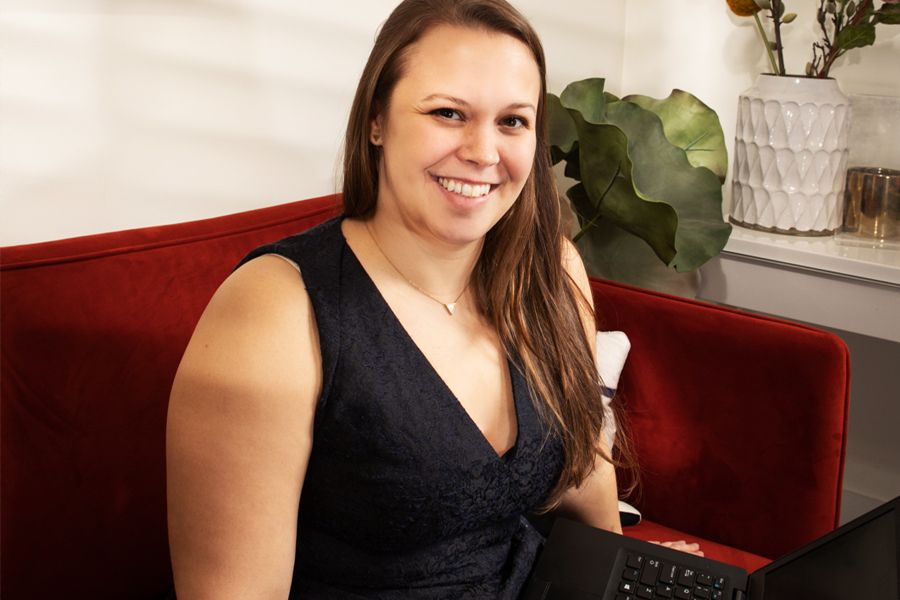Still overlooking millennials? Not OK, Boomer
 Photo: Jordan Hollender
Photo: Jordan Hollender
Why the financial advisory industry continues to fail at connecting with this crucial generation
Lindsey Loughman should be a model client for any financial adviser looking to connect with the next generation of investors. At 33, Ms. Loughman is a senior manager at a large consulting organization, earns a six-figure income, contributes to her 401(k) and participates in an employee-stock program.
[More: 5 ways to connect with millennials]
She believes she has too much cash tied up in savings and wants to invest, but her company discourages individual stock buying to avoid insider-trading allegations. She wants advice on how to invest in funds, what to do with her company stock, how to roll over some orphaned 401(k)s from previous employers and how to buy a home in the near future.

— Lindsey Loughman, 33
“I don’t feel like I really have a game plan. I want to talk to someone,” Ms. Loughman said. “I know I have options … but [I need help] choosing between them.”
What Ms. Loughman wants isn’t complicated: a fiduciary adviser with whom she connects on a personal level, who appreciates her financial goals and can implement a plan to achieve them — and correct her when she drifts off course. Trying to find such an adviser, though, has left Ms. Loughman feeling like the investing world doesn’t really want someone like her.
Her stories of being offered “bundled services” from her bank and large financial institutions, of being disappointed by robo-advice and not wanting to use her father’s adviser because he’ll be retired soon and she’ll have to start over again, echo those from other high-earning millennials who don’t yet have the assets to attract a human adviser, but have needs beyond digital advice platforms.
“If you’re not trying to invest $10 billion, nobody wants to spend time with you,” said Dean LeNeave, a 41-year-old director of operations for a luxury jewelry company.
Advisers he approached wouldn’t go beyond a phone call or offering simple advice he could find himself with a Google search, he said. Mr. LeNeave said he can tell when advisers simply aren’t interested in working with him and his wife, Lauren, a 38-year-old customer relationship manager at a high-end fashion brand, but he wants to start the financial planning and investing process now, not in a few years when he’s saved up a large sum of money.
“I want somebody who knows us, knows our needs and what we want,” Mr. LeNeave said. “You don’t start going to a doctor when you have cancer. You go to a doctor when you notice something is wrong.”
[More: Don’t fear millennials]
Many advisers admit they have no solutions for working with these clients – even though they recognize the 73 million people in the U.S. born between 1981 and 1996 as being the future of investing, standing to inherit billions from their baby-boomer parents. Those who identify as millennials, some of whom are reaching their 40s now, also have inherent financial challenges unique to their generation, and research shows they are off to a slow start. Most millennials entered the workforce at the height of the economic recession, which has shaped many of their life choices — such as delaying buying a home and having children.
Meanwhile, even though the industry has invested in helping traditional brokers offer financial planning that can connect with millennials, many advisers find it just doesn’t fit their business model. Shrinking margins and fee compression are forcing some advisers to give up all small accounts, regardless of age, to focus instead on providing high-touch investing and planning services to their wealthiest, and most revenue-producing, clients.
Also, some advisers say millennials as a group are difficult to work with. Henry Luong Hoang, a certified financial planner with Bright Wealth Advisors, said blogs and online resources often predispose young clients to making poor decisions to beat the market and chase short-term gains.
UNREALISTIC ABOUT RETURNS
Georgia Bruggeman, CEO and founder of Meridian Financial Advisors, said millennial prospects with whom she’s met are often overconfident about their knowledge, unrealistic about returns and have undefined goals.
“Others are unwilling or unable to follow the plan, which is understandable since their lives are in flux and there is so much change during that time,” Ms. Bruggeman wrote in an email.
Even some advisers who understand the need find serving millennials challenging.
In 2014, Scott Stratton, a certified financial planner and president of Good Life Wealth Management, established a program offering financial planning to millennials for $99 per month without a high assets-under-management requirement or large upfront charge. As an early adopter, Mr. Stratton thought he could establish his firm as a destination for millennials who get turned away by other advisers. But now he is shifting course.
There are still many obstacles preventing such a program from being sustainable, Mr. Stratton said. Student loan debt restricts the value an adviser can provide, and even a $99 fee is too much for clients investing small amounts of money. Millennial clients hated seeing a monthly fee charged to their credit cards or automatically withdrawn from bank accounts, a client issue Mr. Stratton never experiences when debiting fees from brokerage accounts, he said.
“We complete most of their planning objectives in 12 months and after that it is more difficult to add value,” Mr. Stratton said in an email. “And my regulators said I was charging in excess of 3% and refused to accept that this was a planning fee, even when I had clients with zero AUM.”
HIGH TURNOVER
The result was high turnover, with nearly half of clients leaving in 18 to 30 months, said Mr. Stratton, who is keeping the program open for existing clients, but refocusing his practices on serving retiring baby boomers.
“Small clients often take as much time as larger clients but are not very profitable when you consider the number of hours they consume. And with higher turnover, the cost and effort of acquisition can be a losing proposition,” he said.
Advisers who have found a business model and path to working with millennials, such as firms in the XY Planning Network, said this attitude risks alienating the next generation from the financial services industry as a whole. According to a Cerulli Associates’ survey of people earning at least $100,000, millennials already work with advisers at a lower rate than older generations.
Nevertheless, when asked what they find most difficult about working with advisers, millennials said expense was far and away their biggest concern, said Scott Smith, Cerulli’s director of advice relationships.
The key for advisers trying to connect with this group is demonstrating the value of that expense, Mr. Smith said.
“Once an investor has begun an engagement, cost concerns become secondary to finding the right adviser that matches clients’ preferences in a variety of ways,” Mr. Smith wrote in an email.
Cost was singled out by Rachelle Lindsay, a 32-year-old clinical program manager for a medical device company. Ms. Lindsay and her husband, Adam, a 33-year-old orthopedic surgeon finishing up his residency, want advice on how to best put their income, stock options and money market fund Ms. Lindsay received from her grandfather, toward building wealth, saving for retirement, buying a home and paying off school loans.
They considered robo-advice, but the tech options they looked at couldn’t help with the money-market fund or what to do with Ms. Lindsay’s company stock options. Mr. Lindsay likes the idea of automating his finances, but doesn’t trust everything to an app.
“If there’s someone who says they understand [the markets] and how to maximize my investment and how to plan to get us financial planning, that’s something that I think would be worth paying for,” Mr. Lindsay said.
ADVICE TOO BASIC
Several of the human advisers with whom they’ve met have offered such basic advice that the couple couldn’t understand why they would pay thousands of dollars for it. Others they’ve met seemed “sleazy,” Ms. Lindsay said.
“I just felt like I was being sold sh-t in every conversation, and I just hate that,” Ms. Lindsay said. “And it’s your money — not something you would entrust with anybody. It’s not buying shoes or even a car. It’s your savings.”
What’s been most helpful for the couple is a financial planner who specifically works with new physicians and came recommended through others at Mr. Lindsay’s hospital. He doesn’t manage investments but he has helped them save for a home and find disability insurance, which is critical for surgeons in case of injury, Mr. Lindsay said.
OH HENRYS!
Priya Malani, founding partner of Stash Wealth, a firm dedicated to serving the High Earning, Not Rich Yet market (HENRYs), said millennials are ready to be taken seriously and are tired of being treated like D-level clients.
“We treat our clients like millionaires before they are millionaires,” she said.
If firms really want to reach the next generation of investors, they must go beyond just rolling out a new app and website, said Bill Nelson, founder of Pacesetting Planning. He compares the moves many firms make to those of a local senior center just changing up the background music to become a hang-out spot for teens.
The solution entails more than technology. Working with millennials requires a different approach and business model.
“There’s a stereotype out there that millennials care most about technology, and so you see larger financial planning firms rolling out apps and robo-advisers, and viewing this as sufficient to attract millennial clients,” Mr. Nelson said. “But most of them still focus on retirement planning as their primary value-add; it doesn’t work.”
Learn more about reprints and licensing for this article.








